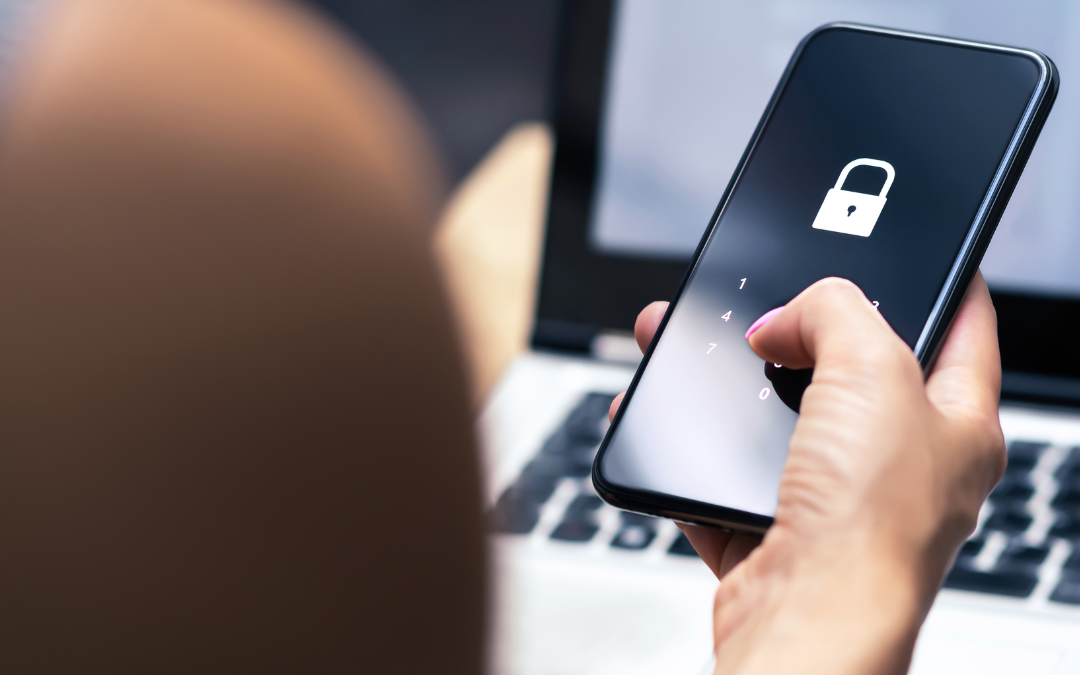
It's important to protect your personal information, by creating a secure digital lifestyle. Ensuring the safety of your data on your devices.
Blog Post
Best Security Practices to Protect your Personal Data
In today's digital age, our personal devices have become an integral part of our lives. From smartphones to tablets, we rely on a variety of digital devices for communication, productivity, and entertainment at all times of the day. However, with the increasing prevalence of cyber threats, it's essential to prioritize mobile security, to keep your information safe and secure. By implementing best practices, that will be covered in this blog post, and securing your personal devices, you can protect sensitive information and enjoy a secure digital lifestyle.
Protection Against Data Breaches
Implementing robust mobile security measures, such as strong passwords, two-factor authentication, and device encryption, helps protect this information from unauthorized access. By securing your devices, you minimize the risk of falling victim to data breaches that could lead to identity theft or financial losses. Mobile devices often store a wealth of personal and sensitive information, including passwords, financial details, and personal contacts.
By securing your personal devices, you minimize the risk of falling victim to people accessing your sensitive information. By creating strong passwords, that use unique or complex numbers, passphrases, or patterns will it make it challenging for people to hack into your devices should they fall into their hands. It is also highly recommended to use biometric authentication methods like fingerprint or facial recognition, which provide an additional layer of security for each device and app as needed.
Another important aspect that must be considered when it comes to protecting against data breaches is enabling encryption on your devices. This not only protects your data, especially if the device is lost or stolen, but gives you peace of mind that your information remains secure. Encryption converts your data into an unreadable format, ensuring that even if unauthorized individuals gain access to your device, they won't be able to view your sensitive information.
Prevention of Malware Infections
Malware, including viruses, ransomware, and spyware, can compromise your device's security and privacy. By implementing robust security measures, such as antivirus software and regular updates, you significantly reduce the risk of malware infections. Malware, including viruses, ransomware, and spyware, poses a significant threat to mobile devices. These malicious programs can compromise your device's security, steal sensitive information, or render your device inoperable. By exercising precautions, while downloading apps or opening email attachments, you significantly reduce the risk of malware infections, therefore, ensuring the integrity and privacy of your personal data.
Another method of preventing possible malware infections is being wary of when connecting to public Wi-Fi networks. More often than not, they are unsecure, making them potential hotspots for hackers to intercept your data. They then can access your information with ease. In order to avoid this, it’s essential to try and prevent these hackers from getting access to your information. If you must connect to public WI-FI networks, try and avoid conducting financial transactions or any activities that include sensitive information. Instead, it is preferred to use a virtual private network (VPN) to establish a secure connection in order for you to conduct your mobile activities without worry.
Lastly, it’s imperative to understand what applications or apps are being installed onto your mobile device. Only install trusted apps, and it is recommended to install trusted security applications as well, such as reputable antivirus and anti-malware software. These apps can detect and remove malicious software, providing an additional layer of protection against cyber threats.
Safeguarding Personal Communications
Personal devices have become an essential tool for communication on a day-to-day basis. With text messages, emails, and social media accounts holding a wealth of sensitive information, it’s important to safeguard your communication options. Implementing mobile security practices ensures that your private communications remain confidential, protecting you from potential eavesdropping or unauthorized access. Not only that, but it protects the confidentiality of your personal communications by securing messaging apps, encrypting email communications, and providing a secure environment for conversations.
Mobile security measures play a crucial role in securing messaging apps and protecting the confidentiality of your conversations. End-to-end encryption is a commonly used technique that encrypts messages in transit, ensuring that only the intended recipient can decipher them. This means that even if intercepted, the contents of your messages will be unreadable to anyone other than the intended recipient. Mobile security solutions also provide a secure environment for conversations through secure messaging apps. These apps offer features like self-destructing messages, where messages are automatically deleted after a specified time period, further enhancing the privacy and confidentiality of your communications.
Additionally, mobile security practices focus on securing email communications, as emails often contain sensitive personal or financial information. Encryption protocols, such as Transport Layer Security (TLS) or Secure Sockets Layer (SSL), are employed to protect the transmission of emails between servers, making it difficult for unauthorized individuals to intercept or tamper with the content. It is important to note that while mobile security measures help protect the confidentiality of your communications, it is equally essential to exercise caution in your digital interactions. Being mindful of the information you share, avoiding suspicious links or attachments, and practicing safe online behavior can further enhance your personal security.
Mitigation of Financial Risks
Mobile devices are increasingly being used for financial transactions, such as mobile banking and online shopping. By securing your device, you reduce the likelihood of financial fraud, unauthorized transactions, or theft of your payment card details. Mobile banking, mobile payment apps, and online shopping have become increasingly popular, offering convenience and ease of use. However, they also present potential security risks. By adopting mobile security measures, such as using trusted payment platforms, enabling biometric authentication for financial apps, and practicing safe browsing habits, you can mitigate the risk of financial fraud, unauthorized transactions, or the theft of your payment card details. Mobile security ensures that your financial transactions remain secure and protects your financial well-being.
In conclusion, securing your personal devices through mobile security practices is essential for safeguarding your digital life and protecting your sensitive information from cyber threats. By implementing measures such as strong passwords, regular software updates, encryption, and trusted security apps, you significantly reduce the risk of data breaches, malware infections, and financial fraud.
However, even with the best security measures in place, unforeseen events like device loss, theft, or hardware failure can still occur. That's why regularly backing up your data is equally important. Creating backups of your important files, contacts, and photos ensures that even if your device is compromised or lost, you can easily restore your information. Backing up your data provides you with peace of mind, knowing that your valuable data is safe and can be recovered in the event of an incident. It serves as an additional layer of protection against potential data loss and allows you to quickly resume your digital activities without significant disruption. Therefore, as you prioritize mobile security, don't forget to incorporate regular data backups into your routine. Whether you choose cloud-based storage solutions, external hard drives, or a combination of both, the key is to establish a backup strategy that works for you and ensure that it is consistently maintained.
By combining robust security practices with regular data backups, you can enjoy a secure and worry-free digital experience. Take the necessary steps today to secure your devices, back up your data, and safeguard your digital life against potential threats.
